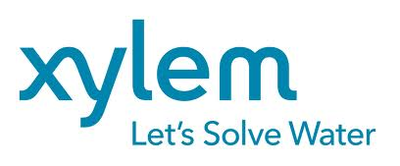
Contact Details:
Xylem Water Solutions South Africa (Pty) Ltd
1 Springbok Road
Bartlett
Boksburg
Gauteng
South Africa
Tel: +27 (0)11 966 9300
Send Enquiry | Company Information

Xylem Study: 65 Percent Reduction in Energy use.
Company News Tuesday, August 28, 2012: Xylem Water Solutions South Africa (Pty) Ltd
8/27/2012 5:00 PM
?White Plains, N.Y. – August 27, 2012 - Xylem Inc., a leading global water technology company focused on addressing the world’s most challenging water issues, has released the results of a full-scale study showing a 65 percent reduction in energy consumption at a municipal wastewater treatment plant in Sweden when more efficient equipment and improved systems were incorporated. The results of the study indicate a four-year payback, with the new system decreasing the total energy consumption of the entire plant by 13 percent.
“These full-scale tests, carried out over a six month period, clearly demonstrate the substantial benefits that Xylem can bring to a wastewater treatment operation,” Lars Larsson, product manager for Xylem said. “Xylem’s extensive experience and expertise in optimizing treatment systems’ energy efficiency is a key focus area for us, and is a skill that can reap significant benefits for our customers.”
Biological-secondary treatment is the most energy-intensive phase in the wastewater treatment process, with aeration consuming between 25 and 60 percent of the total energy used in a municipal plant.* The U.S. Environmental Protection Agency reports that these costs are increasing due to rising energy prices and more stringent requirements for effluent quality. **
The tests were conducted by Xylem at the Sternö municipal wastewater treatment plant in southern Sweden, which was built in 1997 and is designed to serve 26,000 people. Aeration was consuming 44 percent of the total energy usage of the plant. The test line was upgraded with Xylem’s Sanitaire Silver Series Low pressure diffusers, a new blower and a new control system.
With the new Xylem system in place, aeration efficiency is almost three times as high in the test line compared to the reference line. The required airflow was reduced by 30 percent and the system pressure was reduced by 15 percent. These savings were gained by combining a more efficient blower, a higher Standard Oxygen Transfer Efficiency (SOTE), a lower headloss and an energy-optimized dissolved oxygen (DO) control and DO profile, as well as more than 40 years of expertise in optimizing wastewater treatment systems.
*WEF. 2009. MOP No. 32: Energy Conservation in Water and Wastewater Facilities
**EPA (2010). Evaluation of Energy Conservation Measures for wastewater treatment facilities. EPA 832-R10-005.
